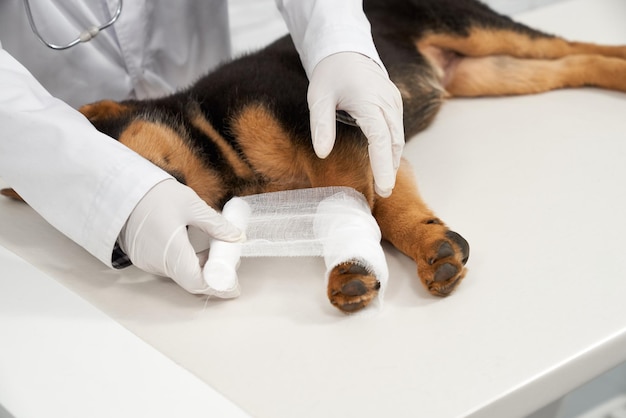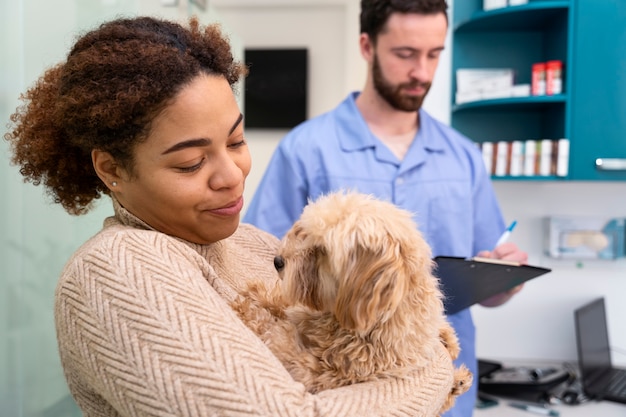Understanding Knee Cap Dislocation Surgery for Pets


Understanding Knee Cap Dislocation Surgery for Pets
When your pet starts limping or suddenly has trouble using one of their back legs, it’s normal to worry about what could be wrong. For many dogs and some cats in Warner Robins, a common culprit is knee cap dislocation, also called patellar luxation. If your veterinarian has mentioned knee cap dislocation surgery, you may be feeling anxious about what that means for your pet and what comes next. At Houston Veterinary Clinic, located at 109 Avalon Circle, Warner Robins, GA 31093, our experienced veterinary team is here to guide you through every step of addressing this condition, from diagnosis to recovery.
This post will help you understand what knee cap dislocation surgery involves, why pets in Warner Robins and surrounding communities may need it, and how our team ensures the safest and most effective outcome for your furry friend. You’ll learn about the signs of knee cap problems, what causes them, and how pet orthopedic surgery in Warner Robins can restore comfort and mobility. If you’re searching for a “vet near me” who can handle both diagnosis and advanced pet orthopedic care, you’re in the right place. We invite you to schedule an appointment with our compassionate veterinarians, who are committed to keeping your pet healthy and active. To learn more about the details of this condition and its treatment, you can also visit our page about knee cap dislocation surgery.
Recognizing the Signs of Knee Cap Dislocation in Pets
Knee cap dislocation, or patellar luxation, can be subtle at first or come on suddenly, depending on the severity. Pets experiencing this orthopedic issue may display a range of symptoms, and early recognition is key to minimizing long-term discomfort. In many cases, dog owners in Warner Robins notice that their pet occasionally skips or hops when walking, lifting one hind leg for a few steps before returning to normal movement. Cats are generally less prone but may show similar changes in gait or agility.
Key symptoms include intermittent limping, reluctance to run or jump, and visible discomfort when the knee is touched. Some pets may show signs of pain, such as whining or avoiding activity, while others might simply seem less energetic than usual. In more severe cases, you may observe swelling around the knee or hear a popping sound when your pet moves. Owners sometimes mistake these intermittent symptoms for minor injuries, but repeating or worsening signs often indicate an underlying orthopedic condition.
It’s important to note that knee cap dislocation can affect one or both legs and may progress over time. If your pet is showing any of these signs, it’s a good idea to schedule a comprehensive orthopedic examination at Houston Veterinary Clinic. Our veterinarians use advanced diagnostic tools to differentiate between causes of limping and provide accurate assessments for pets in Warner Robins and the surrounding area.
What Causes Knee Cap Dislocation in Pets?
Understanding why knee cap dislocation happens can help pet owners make informed decisions about prevention and care. In dogs, patellar luxation is often a result of genetic predisposition, which means certain breeds are more likely to develop this issue due to the way their bones and joints are shaped. Small breeds such as Yorkshire Terriers, Pomeranians, and Chihuahuas are particularly susceptible, but larger breeds can experience it as well. Cats are less commonly affected, but some may develop knee cap issues due to trauma or congenital factors.
Traumatic injuries can also lead to knee cap dislocation. Pets that jump from high places, slip on slick surfaces, or experience sudden impacts may dislocate their kneecap, even if they have no genetic risk. In some cases, underlying conditions such as hip dysplasia or ligament injuries can contribute to instability in the knee joint, making dislocation more likely.
Other contributing factors include obesity, which places additional stress on the joints, and aging, as cartilage and ligaments weaken over time. The climate in Warner Robins, with its warm, humid summers, can also play a role in exacerbating joint discomfort, especially for overweight or less active pets. Our veterinarians at Houston Veterinary Clinic are experienced in identifying the root cause of knee cap dislocation and will tailor recommendations to your pet’s unique situation.
Treatment Options: What to Expect with Knee Cap Dislocation Surgery in Warner Robins
When conservative management like weight control, physical therapy, or anti-inflammatory medications is not enough to relieve your pet’s pain or restore mobility, knee cap dislocation surgery may be recommended. This procedure is a form of pet orthopedic surgery in Warner Robins and is designed to realign the kneecap, stabilize the joint, and prevent future dislocations.
The decision to move forward with surgery is based on the severity of your pet’s condition, their age, overall health, and the impact on their quality of life. During your consultation at Houston Veterinary Clinic, our veterinarians will perform a thorough examination, review any diagnostic imaging, and discuss the best approach for your pet. In some cases, pets with mild symptoms can be managed without surgery, but for those experiencing frequent or severe dislocations, surgical correction provides the greatest chance for a full return to pain-free activity.
Knee cap dislocation surgery typically involves deepening the groove where the kneecap sits and tightening or releasing soft tissues to ensure stable alignment. The surgical plan is always tailored to the individual pet and may include additional procedures if other orthopedic problems are present. Our experienced veterinary surgeons use advanced equipment and monitoring to ensure the highest level of safety throughout the procedure. For more information about how we address similar orthopedic concerns, you can explore our expertise in fractures and dislocations surgery.
Recovery from knee cap dislocation surgery generally involves a combination of rest, controlled exercise, pain management, and follow-up visits to monitor healing. Most pets experience significant improvement in mobility and comfort within a few weeks, though complete recovery can take several months. Our veterinarians will provide detailed instructions and ongoing support to make the process as smooth as possible for both you and your pet.
Prevention and Home Care: Supporting Your Pet’s Joint Health
While not all cases of knee cap dislocation can be prevented, there are practical steps pet owners can take to reduce the risk and support joint health. Maintaining a healthy weight is one of the most effective ways to relieve stress on your pet’s knees, especially for breeds prone to orthopedic issues. Regular exercise tailored to your pet’s needs helps build strong muscles and keeps joints flexible, but it’s important to avoid activities that involve frequent jumping or abrupt changes in direction if your pet is at risk.
Providing a safe, slip-resistant environment at home can prevent traumatic injuries, particularly for active dogs and cats. Using ramps or steps to help pets access furniture and avoiding high jumps can further protect their joints. Nutritional supplements such as glucosamine and chondroitin may be recommended by your veterinarian for added joint support, and annual wellness exams allow for early detection of orthopedic changes.
If your pet has already experienced a knee cap dislocation, following your veterinarian’s recommendations for activity restriction, medication, or physical therapy is essential to minimize pain and prevent recurrence. Our team at Houston Veterinary Clinic can guide you on the best preventive strategies for your pet’s lifestyle and breed, helping to keep your furry family member active and comfortable.
When to Seek Veterinary Care for Knee Cap Dislocation
Prompt veterinary assessment is crucial whenever your pet displays signs of lameness, pain, or sudden changes in mobility. If your pet is holding up a leg, yelping when moving, or seems unable to bear weight, these are clear indicators that professional evaluation is needed. Pets with chronic or recurring symptoms should also be examined, as untreated knee cap dislocation can lead to arthritis, permanent joint damage, or worsening pain over time.
In some situations, immediate attention is required. Severe pain, inability to stand, or sudden swelling may indicate a more serious injury or complication. Our veterinarians at Houston Veterinary Clinic have extensive experience in diagnosing and treating orthopedic issues, including knee cap dislocation surgery in Warner Robins. We encourage you to schedule an appointment as soon as you notice concerning symptoms. Early intervention offers the best chance of a full recovery and can prevent secondary problems from developing.
If you’re uncertain whether your pet’s symptoms require urgent care or if you simply want peace of mind, reaching out to a “veterinarian near me” like our team in Warner Robins ensures you receive timely, expert advice. To learn more about how we manage various orthopedic and internal conditions, you may also find our information on internal surgery for pets helpful.
Your Partner for Pet Orthopedic Surgery in Warner Robins
At Houston Veterinary Clinic, we understand how stressful it can be to face the possibility of surgery for your beloved companion. Our goal is to provide clear guidance, compassionate care, and advanced solutions for knee cap dislocation and other orthopedic problems, giving your pet the best chance at a pain-free, active life. When you need pet orthopedic surgery in Warner Robins or are searching for a “vet near me” who values both technical expertise and personal attention, you can count on our veterinary team to be there at every step.
If you have noticed your pet limping, skipping, or showing signs of knee discomfort, don’t wait for symptoms to worsen. Schedule an appointment for a comprehensive evaluation with our experienced veterinarians at 109 Avalon Circle, Warner Robins, GA 31093. We will work with you to develop the best treatment plan, answer all your questions, and support your pet’s recovery from diagnosis through rehabilitation. For more details on our services or to discuss your pet’s specific situation, visit our knee cap dislocation surgery page or call us at (478) 929-0361.
Choosing a quality veterinary clinic that specializes in orthopedic and surgical care means your pet is in trusted hands. Let Houston Veterinary Clinic be your “best vet team near me” for knee cap dislocation surgery in Warner Robins and the surrounding communities. Your pet’s comfort and mobility are our top priorities—reach out today to start your pet’s journey toward healing and renewed activity.
Disclaimer: This blog is intended for informational purposes only and does not substitute for professional veterinary advice. If your pet is experiencing pain, lameness, or other symptoms, please contact your veterinarian promptly for personalized guidance and care. For more in-depth information about pet orthopedic surgery and related procedures, you can explore our fractures and dislocations surgery and internal surgery services.



















